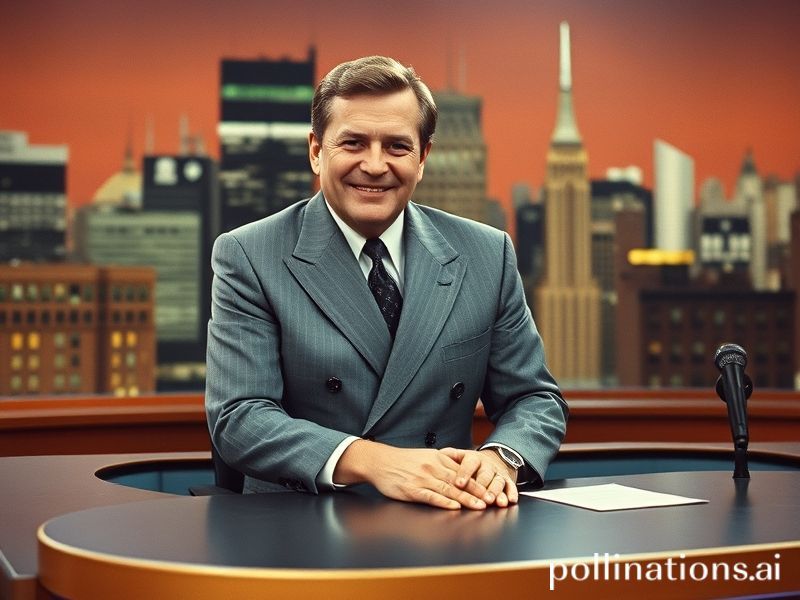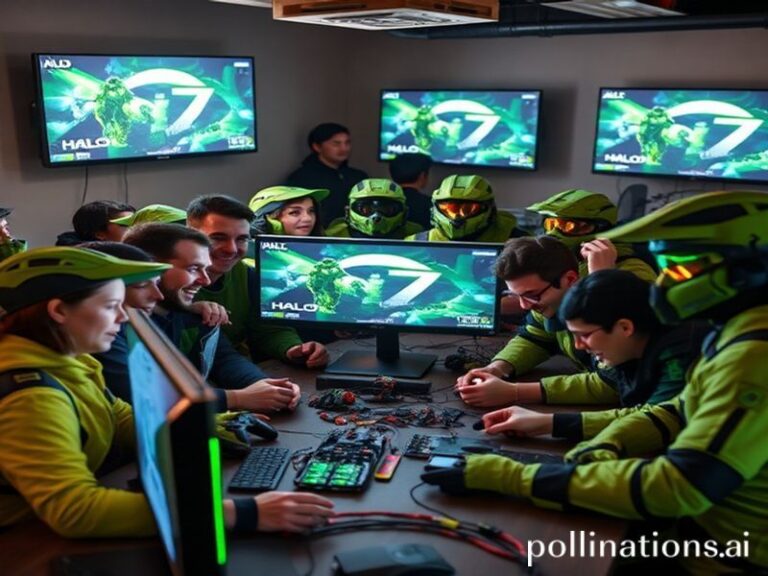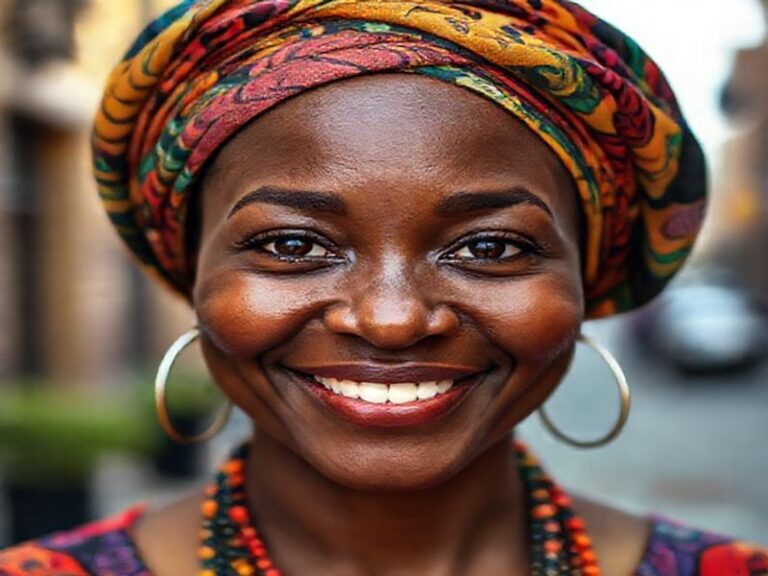David Letterman: How One Gap-Toothed American Exported Sarcasm to the Entire Planet
DAVID LETTERMAN: AMERICA’S LATE-NIGHT EXPORT THAT TAUGHT THE WORLD HOW TO YAWN IN SARCASM
By our man in the cheap seats, somewhere over the Pacific
The first time a bar in Reykjavík stayed open past 2 a.m. to simulcast “Late Night,” the locals thought Letterman’s gap-toothed grin was a US dental-insurance commercial. By the second week they’d learned to laugh at the irony of a superpower lecturing the planet on bedtime while bombing it with reruns. Thus did David Letterman become the United States’ most durable soft-power weapon: a sardonic ICBM launched nightly from a desk in Rockefeller Center, armed with Top Ten lists instead of warheads, and calibrated to detonate somewhere between your conscience and your laugh track.
Globally, the show arrived like a diplomatic cable from an alternate universe where nations measure their clout not in fighter jets but in ironic distance. In 1993, Russian state TV cut away from parliamentary fistfights to beam in Letterman dropping watermelons off a five-story building. Muscovites took it as both comedy and prophecy: the Soviet experiment had ended, and the new world order was apparently sponsored by GE lightbulbs and whatever the hell “Calvert DeForest” meant. Overnight, oligarchs began commissioning English tutors not for trade deals, but to understand why a man in a suit was asking Rupert Jee if he could deep-fry a Peabody Award.
Across the Pacific, Japanese network NHK subtitled Letterman’s monologues with the same furrowed-brow intensity they once reserved for imperial edicts. Salarymen in Osaka concluded that American anxiety looked suspiciously like their own, only louder and with more Stupid Pet Tricks. The export value was staggering: by 2001, the show’s clips formed the single largest component of China’s nascent CCTV-9 “English Corner,” teaching 300 million students that sarcasm is a tense, not just an attitude. Somewhere in Shenzhen, a factory manager still quotes the “Oprah, Uma” bit to justify 14-hour shifts—“Look, even Americans can’t explain their celebrities.”
Europe, naturally, pretended to be above it all. The BBC sniffed that Letterman was “too New York,” which is British for “too Jewish” or possibly “too alive.” Yet by 2005, Berlin’s cabaret scene had lifted his ironic pause wholesale; you could hear it echoing in smoky basements where comedians asked, “Is our surveillance state more or less funny than a monkey cam?” French philosophers wrote 4,000-word essays on the ontological implications of throwing bowling balls off a roof, concluding that gravity itself had a latent American accent. In short, the Old World discovered that self-mockery could be outsourced without tariffs.
Letterman’s real geopolitical coup, however, came post-9/11. While other late-night hosts wrapped themselves in flags, Dave looked like he’d swallowed one. “We’ll be back in two weeks,” he croaked from a dimly lit desk, and the planet nodded in exhausted solidarity. That clip played in Ramallah kebab shops and Seoul subway screens with subtitles that translated not just the words but the collective shrug: welcome to the age when even superpowers need a nap. Overnight, the show became the UN of insomnia—everyone tuning in at 00:30 local time to watch one man metabolize national trauma into a punch line about Dick Cheney’s undisclosed location.
Now, as streaming platforms atomize audiences into algorithmic dust, Letterman’s new Netflix series has morphed into a geriatric gap year: white-haired American drives to Modi’s India, politely nods at Pope Francis, and asks Kanye about medication. Viewers in Lagos burn through data plans to watch an old man interview younger old men about regrets, which feels oddly like watching a civilization draft its own footnotes. The global takeaway? Empires end not with a bang but with a remote interview in a tastefully lit yurt, sponsored by a credit-card company that also finances your apocalypse.
And so, from Lagos to Ljubljana, the legacy endures: an American export that proved you could weaponize awkward silence, monetize existential dread, and still make Finland laugh. Somewhere tonight, a teenager in Jakarta is Googling “Top Ten Signs Your Democracy Is Overrated,” wondering if the joke’s on Dave, on America, or—most terrifyingly—on the rest of us who bought the syndication rights to our own disillusionment. Sleep tight, planet. The gap-toothed uncle of post-industrial despair will be right back after these messages from our global sponsor: the slow-motion realization that the commercial break never actually ends.







